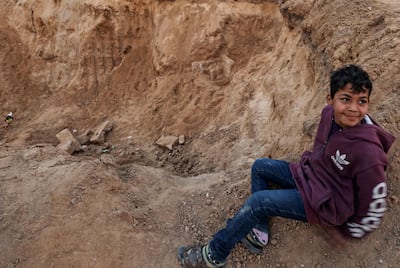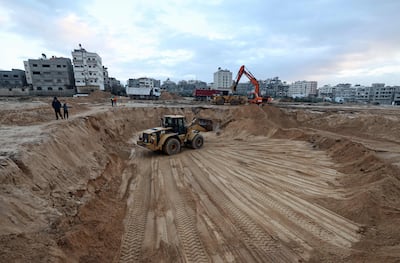A 2,000-year-old Roman cemetery containing at least 20 ornately decorated graves has been uncovered near the shoreline in the northern Gaza Strip, with the antiquities ministry calling it the most important local discovery of the past decade.
Gaza is rich in antiquities, having been an important trading spot for many civilisations from as far back as the ancient Egyptians through the Roman Empire and the Crusades.
Ruins discovered there include the remains of city besieged by Alexander the Great as well as the Mongols.
Twenty Roman graves have been located so far and the team expect to unearth 80 in total within the 50-square-metre cemetery.
Only two graves have been opened, with one containing skeletal remains and clay jars.

Because of the shape of the graves, which date back to the first century, and the relatively ornate decorations, they likely belonged to “senior-ranking people” in the Roman Empire, said Jamal Abu Rida, director general of Gaza's Ministry of Tourism and Antiquities.
Unlike Muslim graves from later periods that face north to south, the Roman graves lie east to west, he said.
“We have made several discoveries in the past, this is the most important archaeological discovery in the past 10 years,” said Mr Abu Rida.

The area is closed off to journalists and the public while the site is organised and made safe for visitors, the ministry said.
The site, which is being supervised by a French team of experts, was found by a construction crew working on an Egyptian-funded housing project.
When they came upon some of the cemetery's large, ancient bricks, they stopped work and called in archaeologists.
Gaza is run by the Palestinian group Hamas, which has fought four wars with Israel since 2008.
The conflict has destroyed the local economy and authorities usually engage international groups to help excavate and preserve archaeological findings, said Mr Abu Rida.

